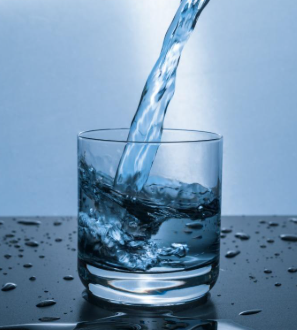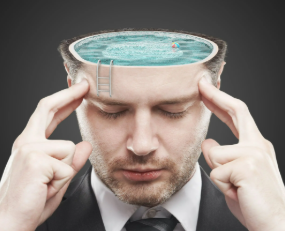We often hear that drinking water is essential, but few realize just how quickly dehydration can impact our bodies, especially our heads. A sudden headache or feeling foggy can sometimes appear after just a few hours without adequate fluid intake. Understanding why this happens can help you take better care of your body and maintain a clear, refreshed mind throughout the day.
The human body is made up of about 60 percent water, and the brain alone consists of roughly 75 percent water. This high water content highlights how crucial proper hydration is for maintaining mental clarity and physical function. Water plays an essential role in delivering nutrients to cells, regulating temperature, and supporting chemical reactions. When we don’t consume enough fluids, these vital processes are disrupted, and the brain, being highly sensitive, reacts almost immediately.
One of the primary reasons dehydration affects the head quickly is that a lack of water reduces blood volume. Blood is mostly water, and it carries oxygen and essential nutrients to all parts of the body, including the brain. When blood volume decreases, the flow of oxygen and nutrients slows, which can trigger a headache. You may feel this as a throbbing or tight sensation because the brain temporarily contracts or pulls away from the skull slightly. This reaction is the body’s way of signaling that it needs hydration to maintain proper function.
Electrolytes are another factor in dehydration-related head discomfort. Sodium, potassium, and other electrolytes help maintain the body’s fluid balance, nerve function, and muscle control. When fluid intake drops, electrolyte levels can become unbalanced. This imbalance affects nerve signaling, leading to headaches, dizziness, or confusion. Even mild dehydration can interfere with the brain’s ability to communicate effectively with the rest of the body, which is why a small lapse in hydration may make you feel foggy or irritable.
Additionally, dehydration can cause changes in hormone levels that influence how the body responds to stress and pain. When the body senses fluid loss, it releases hormones such as vasopressin, which signals the kidneys to conserve water. While this is helpful for maintaining hydration, it can constrict blood vessels, including those in the brain. Constricted blood vessels reduce blood flow and oxygen supply, intensifying feelings of discomfort and often triggering a headache. This process can make the brain particularly sensitive to dehydration, causing symptoms to appear more rapidly than in other parts of the body.
Another reason the head is so vulnerable to dehydration is the brain’s reliance on cerebrospinal fluid. This fluid cushions the brain and spinal cord, providing mechanical protection and assisting in the removal of waste. When the body loses water, the volume of cerebrospinal fluid can decrease slightly. Even a minor reduction can create a sensation of pressure or tightness in the head. People often describe this as a “dehydration headache,” which can be one of the first noticeable signs that the body needs fluids.
Temperature regulation is closely linked to hydration, and the brain is particularly sensitive to changes in temperature. Water is essential for maintaining the body’s internal cooling system through sweating and blood flow adjustments. When dehydrated, the body struggles to cool itself effectively. An overheated brain can contribute to headaches, fatigue, and difficulty concentrating. This explains why people often experience stronger headaches on hot days if they haven’t been drinking enough water.
Interestingly, research suggests that even mild dehydration can affect cognitive function. Studies have shown that a loss of just one to two percent of body weight through fluid loss can impair attention, short-term memory, and overall mental performance. Because the brain is highly dependent on a consistent supply of water, a small deficit is felt quickly in mental clarity, focus, and mood. This explains why many people experience irritability or mental sluggishness when they skip water for a few hours.
Lifestyle factors can also accelerate the effects of dehydration on the head. Caffeine and alcohol, for example, have diuretic effects, causing the body to lose water more quickly. Long periods of physical activity or exposure to hot environments increase fluid loss through sweat. In such situations, even a slight delay in fluid replacement can lead to headache or dizziness. Awareness of these factors is important because it highlights that dehydration is not always about total water intake, but also about maintaining a balance that matches activity levels and environmental conditions.
Hydration strategies are simple but highly effective in preventing dehydration headaches. Drinking water consistently throughout the day rather than waiting until you are thirsty helps maintain steady fluid levels. Including water-rich foods such as fruits and vegetables in meals also contributes to hydration. In cases of intense activity or heat exposure, electrolyte solutions can help replace lost minerals and prevent headaches before they start. Understanding the body’s signals, like a dry mouth, fatigue, or mild lightheadedness, can prompt timely fluid intake, often preventing a headache entirely.
It is important to note that not all headaches are caused by dehydration, but for many people, inadequate fluid intake is a frequent and preventable trigger. By paying attention to daily water consumption, adjusting intake according to activity and environmental conditions, and recognizing early signs of dehydration, individuals can significantly reduce the risk of sudden headaches. Staying hydrated is not just about comfort; it is about supporting the brain’s optimal performance and overall well-being.
In conclusion, dehydration affects the head quickly because the brain is highly dependent on a stable fluid balance to function properly. Reduced blood volume, electrolyte imbalances, hormonal responses, and changes in cerebrospinal fluid all contribute to the rapid onset of headache symptoms. Temperature regulation and cognitive function are also directly influenced by hydration, making the head particularly sensitive to fluid loss. By maintaining consistent water intake, being aware of lifestyle factors, and responding to early signs of dehydration, it is possible to prevent headaches and support mental clarity. Drinking water may seem simple, but it is one of the most effective tools for keeping your head and body in peak condition. Staying hydrated allows you to feel refreshed, alert, and ready to tackle the day without the distraction of a sudden headache.






